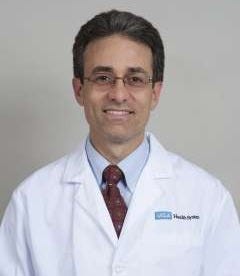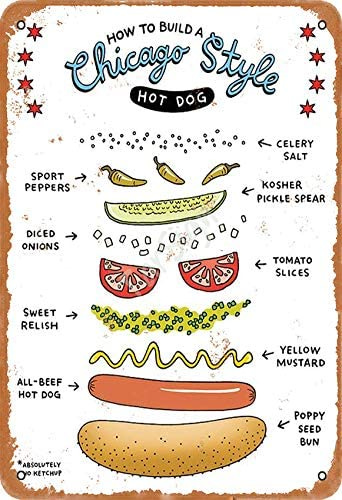UCLA researchers report low omega-6/ high-omega 3 diet with fish oil supplement slows cancer cell growth in AS patients
By Howard Wolinsky
I don’t know about you. But probably the second thing I asked about after I was diagnosed with low-risk prostate cancer was what I should do about diet.
The answer I got was disappointing, The answer was nada, My urologist, a big fan of Active Surveillance and these days of a vegan diet in his own life, said there was then (2010) no proof that diet can had an impact on prevention of or progression of prostate cancer.
A couple years ago, I was on a panel with Howard Parnes, MD, head of prostate cancer research for the National Cancer Institute. He told us his group had been looking for dietary answers for prostate cancer for three decades and had come up empty. (Some attendees booed.)
But the pendulum is swinging the other way as there is growing evidence of benefits from a variety of diets—vegan and vegetarian, Mediterranean, and even a USDA diet. Major centers such as Johns Hopkins, NYU, UCLA and more are publishing research on the benefits of dietary components for men on Active Surveillance.
A newly published study in the Journal of Clinical Oncology by UCLA Health Jonsson Comprehensive Cancer Center researchers showed that a low omega-6, omega-3-rich supplemented with fish oil diet may slow prostate cancer growth.
Men on Active Surveillance who followed a low omega-6 and high omega-3 -rich diet with fish oil supplements had significantly lower levels of cancer cell proliferation after one year. https://ascopubs.org/doi/10.1200/JCO.24.00608
The researchers note there are no specific guidelines established for diet and prostate cancer. They add that while other clinical trials have looked at increasing vegetable intake and healthy diet patterns, none has found a significant impact on slowing cancer progression.
The UCLA study offers new evidence that dietary changes may help reduce cancer cell growth in patients undergoing Active Aurveillance, a treatment approach that involves regular monitoring of the cancer without immediate intervention.
Men on active surveillance who followed a low omega-6, high omega-3 diet with fish oil supplements had significantly lower levels of cancer cell proliferation after one year.
"This is an important step toward understanding how diet can potentially influence prostate cancer outcomes," said William Aronson, MD, professor of urology at the David Geffen School of Medicine at UCLA and lead author.
(Dr. William Aronson)
"Many men are interested in lifestyle changes, including diet, to help manage their cancer and prevent the progression of their disease. Our findings suggest that something as simple as adjusting your diet could potentially slow cancer growth and extend the time before more aggressive interventions are needed."
To determine whether diet or supplements can play a role in managing prostate cancer, researchers conducted a prospective clinical trial, called CAPFISH-3, that included 100 men with low risk or favorable intermediate risk prostate cancer who chose Active Surveillance.
Participants were randomly assigned to either continue their normal diet or follow a low omega-6, high omega-3 diet, supplemented with fish oil, for one year.
Participants in the intervention arm received dietary personalized counseling by a registered dietician nutritionist, either in-person, through telehealth or by phone.
Patients were guided on healthier, lower-fat alternatives for high fat/high calorie foods (such as using olive oil or lemon and vinegar for salad dressing), and on reducing consumption of foods with higher omega-6 content (such as, chips, cookies, mayonnaise and other fried or processed foods). The goal was to create a favorable balance of their intake of omega-6 and omega-3 fats and make participants feel empowered to control how they change their behavior.
They were also given fish oil capsules for extra omega-3s.
The control group did not get any dietary counseling or take fish oil capsules.
The researchers tracked changes in a biomarker called the Ki-67 index, which indicates how fast cancer cells are multiplying -- a key predictor of cancer progression, metastasis and survival.
Same site biopsies were obtained at the start of the study and again after the one-year mark, using an image fusion device that helps track and locate the cancer sites.
Results showed that the low omega-6, omega-3 rich diet and fish oil group had a 15% decrease in the Ki-67 index, while the control group saw a 24% increase.
"This significant difference suggests that the dietary changes may help slow cancer growth, potentially delaying or even preventing the need for more aggressive treatments," said Aronson, chief of urologic oncology at the West Los Angeles Veterans Affairs Medical Center.
The intervention did not impact Gleason scores.
The investigators caution that further research is necessary to confirm the long-term benefits of omega-3 fatty acids and lowering omega-6 in managing prostate cancer.
The findings support larger studies to explore the long-term impact of dietary changes on cancer progression, treatment outcomes and survival rates in men on active surveillance.
The National Cancer Institute, the UCLA Health Jonsson Comprehensive Cancer Center, Howard B. Klein and the Seafood Industry Research Fund partially funded the study.
Diet will be covered in the “Active Surveillance 2025: Year in Review” webinar at noon Eastern on Saturday Jan. 4. Christian Pavlovich, MD, head of AS at Johns Hopkins, will be discussing. a new study showing that a USDA diet had benefits for patients on AS. See my coverage here. Paid subscribers to this newsletter get a free pass for the program. If you want to get a paid subscriptionm go here:
Subscribed
Check out these reports on diet:
Shining some light on diets to slow lower-risk prostate cancer--don't forget to exercise
Feb 17
Some good news for plant-based diets in dealing with prostate cancer
·
July 7, 2022
Time to register for ‘Active Surveillance 2025: The Year in Review’
By Howard Wolinsky
Paid subscribers and founding members get a free pass to “AS25,” a special program this newsletter is hosting noon-1:30 p.m., Saturday ,Jan. 4, 2025. You get private messages on how to register.
If you have an unpaid subscription but to join us, pony up here:
Subscribed
This is the first such program TheActiveSurveillor.com has hosted. I am providing this program as a premium to paid subscribers and trying to keep this newsletter afloat. (That’s my public TV/radio-style appeal for your help.)
If you can’t afford it, or have special circumstances (such as living in a country facing a banking boycott from the U.S.—yes this happening to at least one reader, or are a working musician, let me know and we’ll work it out. One donor has created a fund to cover these subscriptions. Contact me at howard.wolinsky@gmail.com
Sorry, the newsletter may seem free, but I devote considerable time to producing the newsletter two or three times a week, turning down more lucrative work.
I will report on any news coming out of the webinar.
One bit of the news. Famed uropathologist Jonathan Epstein, MD, is making his first appearance at a patient meeting in almost two years. He had kept a low-profile since resigning from Johns Hopkins in February 2024 following a dispute with Hopkins, his professional home for almost 40 years.
Dr. Epstein will be speaking on a panel on what happened in prostate cancer in 2024 and what’s on tap for 2025.
Previously announced panelists are:
—Brian Helfand, MD, PhD, chief of urology at NorthShore University HealthSystem outside Chicago, an expert not only in prostate cancer but also in molecular biology.
—Christian Pavlovich, MD, who runs the Active Surveillance program at Johns Hopkins and recently co-authored a major study on diet.
—Timothy Showalter, MD, MPH, medical director of Artera AI, which has made news with its prostate test to help patients decide whether to go on AS.The Active Surveillor is a reader-supported publication. To receive new posts and support my work, consider becoming a free or paid subscriber.






Jerrey,
Thanks to you and others for pointing out my error.
I will try to get this fixed. For now, stick with the story.
I will try to get it fixed.
Howard
Headline in the 'corrected' post still has it wrong -- or at least implies the opposite of what the text says was found.
Headlilne still says low Omega 3, high Omega 6 is best.
But it's the opposite, as the text says. High Omega 3, low Omega 6 is best.
Repeating the same erroneous headline while prefacing it with "Correction" seems to just repeat the error.
It's the headline that needed to be corrected, not the story, in either post, isn't it?.